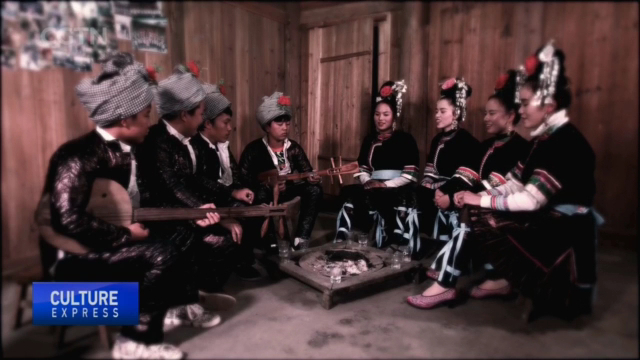
19:21, 02-Jan-2019
Chasing Ancient Notes: Music researcher protects intangible cultural heritage by recording of ancient music
Updated
19:11, 05-Jan-2019
04:27

It's not just kung fu. Much of the country's traditional culture has been rediscovered and preserved in the past four decades of opening up and reform. China now has the largest number of Intangible Cultural Heritage elements inscribed by UNESCO in the world. Tian Qing, a music expert and researcher, has dedicated much of his life to retracing the ancient music of China and bringing it back to life.
40 years ago, Tian Qing was working as a teacher at the Tianjin Conservatory of Music, teaching Chinese ancient music history and Western music classics. He realized that compared with the studies of western music history, there were very little audio references for Chinese ancient music. He started to look for the ancient notes, and music from temples attracted his attention.
TIAN QING "I wanted to go inside the walls of the temples, and see if ancient music could still be found there. Religious culture was rarely explored. But the forbidden zone was not defined by anyone. Researchers usually kept their work out of that area. I proceeded without hesitation to enter it, and found it was very profound, interesting, and worth researching."
Carrying a big recorder, Tian Qing started his journey of exploring religious music, which he kept doing for three decades. He spent ten years recording the most representative Buddhist music. The 30 tapes he made have become a treasure for studying the country's ancient music.
TIAN QING "I've gained a lot, and also understood that the vitality of China's traditional culture, including the Buddhist culture, was much more remarkable than what we thought. It has managed to preserve itself under all sorts of testing circumstances. I also found the roots of the traditional culture among the people."
Over the past four decades, two major music trends had a deciding role in shaping China's soundscape. Pop music entered the scene in the 1980's. And a revived version of traditional-style folk music rose to widespread acclaim at the start of the new millennium. It was this second genre, where Tian Qing made his impact felt.
TIAN QING "The issue of a thousand people all singing in the same style was not raised by me, but by the public. I only pointed it out in mainstream media. A scholar should pursue truth. I said this was neither the problem of the singers nor of the teachers. We were in a society that was transforming from an agricultural civilization to an industrial civilization, which advocated scientific and industrial things. My opinion was a bombshell in the vocal music field."
Tian Qing's speech aroused strong reactions from audiences nationwide. To separate different singing styles, the CCTV singing competition added a genre category for traditional style folk singing, helped bring the genre into the public eye.
In the first years of the 21st century, people had no idea about what the concept of 'intangible cultural heritage' really meant. But Tian Qing devoted himself in the field.
He was appointed vice director of China's intangible cultural heritage research and protection center in 2006. And designed an exhibition to show the results of the country's efforts.
TIAN QING "Before the opening of the exhibition, many in the media had no idea what intangible cultural heritage was, and were not willing to come. After three days of exhibiting, people flocked to see it. They said they didn't know that our country still had so many beautiful and amazing things."
In 2006, 22 Chinese practices were included in the UNESCO list, making China the country with the most items on the index. Tian Qing has been continuing his efforts in the area.
During the ten years that he was a member of China's political consultative conference, almost all of his proposals were related to intangible cultural heritage protection. Tian Qing said he's ready to dedicate the rest of his life to the task.

SITEMAP
Copyright © 2018 CGTN. Beijing ICP prepared NO.16065310-3
Copyright © 2018 CGTN. Beijing ICP prepared NO.16065310-3